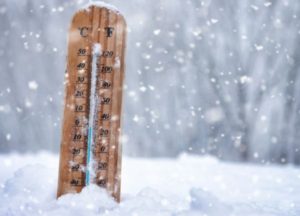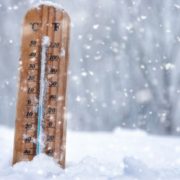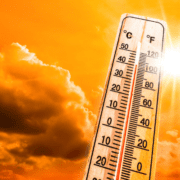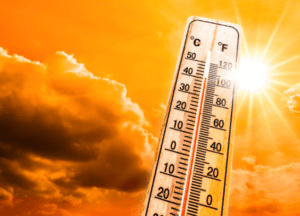Winter Storm Safety: Protect Yourself in Extreme Cold Weather

Across Kansas, we’re getting hit with Winter Storm Warnings and Wind Chill Warnings. That comes frigid temperatures, snow and potentially threatening weather conditions.
Even just a few minutes outside in sub-zero temps can be dangerous.
Signs of Hypothermia
Hypothermia can happen in very cold weather. “In cold weather, your body begins to lose heat faster than it can be produced, which can lead to serious health problems,” according to the Centers for Disease Control and Prevention (CDC).
If you notice any of these symptoms of hypothermia, call for help immediately:
- Shivering
- Exhaustion
- Confusion or impaired judgement
- Fumbling hands
- Memory loss
- Slurred speech
- Drowsiness
- Glassy stare
Try to restore normal body temperature while waiting for emergency crews to arrive. The American Red Cross recommends the following tips:
- Move the individual to a warm place.
- Remove any wet clothing and put on dry clothes.
- Warm the person by wrapping in layers and blankets.
- Monitor breathing and circulation and perform CPR if needed.
How to Spot Frostbite
Exposing skin to winter weather and extremely cold temps can also lead to frostbite. “It leads to a loss of feeling and color in the areas it affects, usually extremities such as the nose, ears, cheeks, chin, fingers, and toes. Frostbite can permanently damage the body, and severe cases can lead to amputation,” according to the CDC.
Individuals with poor circulation and those who are not appropriately dressed for winter weather are at most risk for frostbite.
Look out for redness or pain on your skin, which may be the first sign of frostbite. Other symptoms from the Red Cross include:
- Discolored skin that is white, gray, yellow or blue
- Skin that feels firm, waxy or cold to the touch
- Numbness or lack of feeling
If someone is experiencing frostbite due to cold weather, check to see if they are also showing signs of hypothermia. Regardless, it’s important to seek medical attention immediately and take action in the meantime:
- Move the person out of the cold and in a warm place.
- Do not rub the affected area. Handle it gently.
- Put the frostbitten area in warm, but not hot, water until it appears red and feels warm.
- If water isn’t available, use body heat. For example, if your fingertips have frostbite, place them under your armpit.
- If toes are frostbitten, use dry gauze between toes to keep them separated.
- Do not use heating pads or heat from a stove or fireplace as the area is already numb and can burn easily.
Stay Safe in Cold Weather
When the weather is this frigid, experts recommend you avoid being outside. If you have to go out, limit your time outdoors or take frequent breaks from the cold. Wear lots of layers to stay warm and cover exposed skin. That means a warm coat, hat, scarf, thick socks, boots and mittens or gloves.
Lastly, make sure at least one person knows your whereabouts at all times.
About Advena Living
At Advena Living, our priority is keeping community members warm and safe. At our seven locations throughout Kansas, we are prepared to handle severely cold temperatures. We have emergency plans in place in the event of a power outage, along with extra blankets and food.
We specialize in assisted living, skilled nursing, rehabilitation, and long-term care throughout the state. Our locations include Bonner Springs, Cherryvale, Clay Center, Clearwater, Rose Hill, Topeka, and Wichita.
To learn more about us, visit our website.



